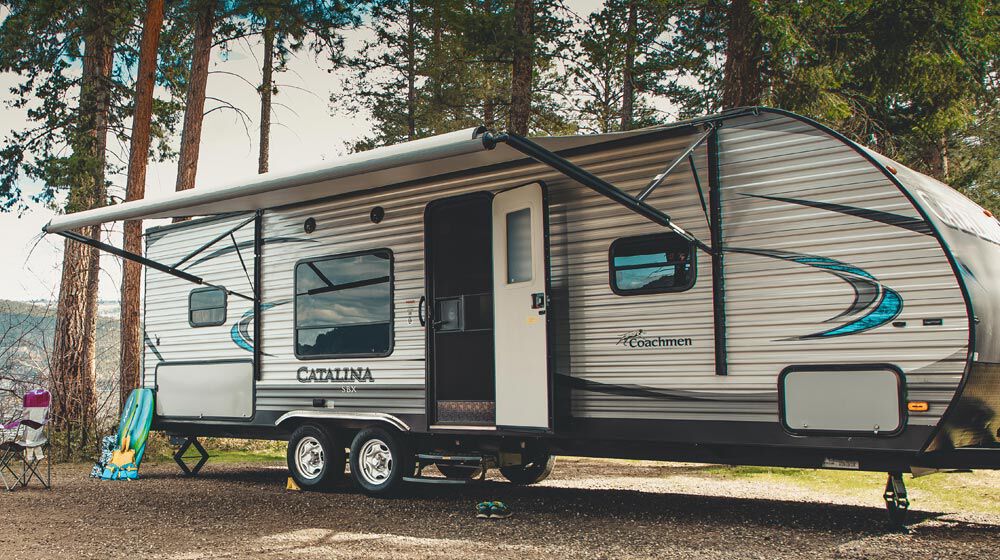As the temperature rises and summer is in full swing, you’re eager to attach your recreational or boat trailer and embark on a well-deserved adventure.
But are your trailer tires as ready as you are? They’re an important component of your journey that need careful attention. If properly maintained, high-quality trailer tires can be a long-lasting investment for many future travels.
Choosing the best trailer tire for your recreational, boat, or utility trailer
Special Trailer (ST) tires offer numerous benefits for your trailer. They are specifically designed for use on various trailers such as travel trailers, pop-up campers, boat trailers, and fifth wheel trailers. Unlike car or light truck tires, ST tires have a unique construction with larger polyester or steel cords that provide greater tensile strength to meet additional load requirements.
These tires feature a symmetric tread design with a solid centre rib that enhances rubber-to-road contact, resulting in improved stability and reduced sway. They also possess robust sidewalls that can handle heavy loads, effectively preventing your trailer from tipping during turns.
In terms of performance, ST tires have a 10% higher load capacity than similarly sized light truck tires and a remarkable 40% more load capacity than standard tires. They also offer improved fuel economy due to shallower grooves.
Moreover, these tires are engineered to last. Radial ST tires, in particular, are recognized for their superior tread wear, lasting an average of several years under proper maintenance.
However, it’s essential to note that ST tires are rated for a maximum speed of about 65mph (about 100kph) and are not intended for use on cars or light trucks.
While it is possible to install LT, or light truck, tires on your trailer, LT tires lack the rigidity of an ST tire and can cause swaying and handling issues. An ST tire promotes:
- Better towing stability
- Sway reduction
- Temperature management
Check the Trailer Owner Manual
Choosing the best trailer tires for your camper, boat, or horse trailer can be a complex task. However, with some guidance, you can make an informed choice that fits your needs.
Likely found within the pages of your owner manual for most trailers or on the door placard in an RV, you should search for information regarding:
- Optimal tire size
- GVWR or gross vehicle weight rating or the maximum weight the vehicle can carry when fully loaded
- Gross axle weight rating or the maximum weight capacity of each axle
- Load rating
- Recommended tire pressure
It’s crucial to know your trailer’s weight. This is because every tire has a unique load rating, and it’s not advisable to compromise on this aspect. Whether you’re purchasing highly-rated trailer tires or not, the tire’s load capacity should match that of your trailer’s original tires.
When it comes to replacing your trailer tires, it’s advisable to stick with the specifications provided by your trailer manufacturer. Downsizing your trailer tires is not recommended as it may impact the speed rating and overall performance.
Lastly, maintaining the correct tire pressure is key to extending the lifespan of your trailer tires. Regular checks and adjustments can prevent premature wear and tear.
In summary, selecting the right trailer tires involves considering the weight of your trailer, adhering to your trailer manufacturer’s specifications, and maintaining the correct tire pressure. With these considerations in mind, you’re set for a smooth and safe journey. For assistance in choosing the right tire, or for tire repair, consult your local mobile tire service for advice.
